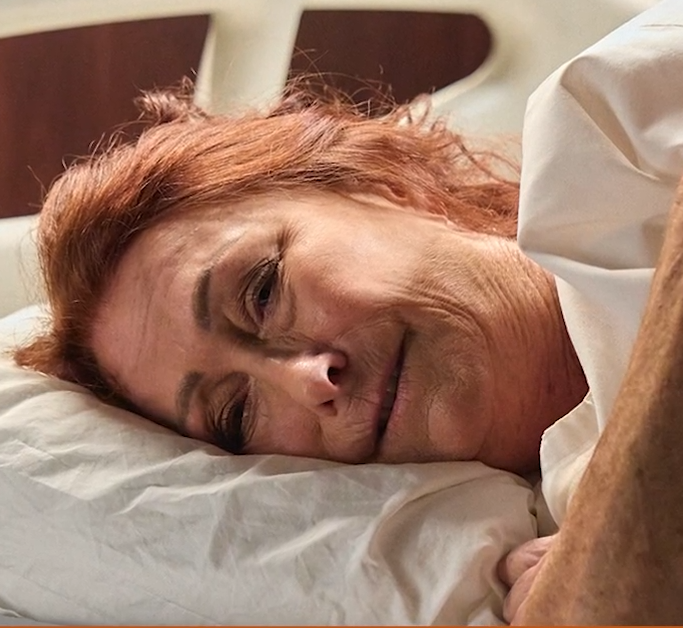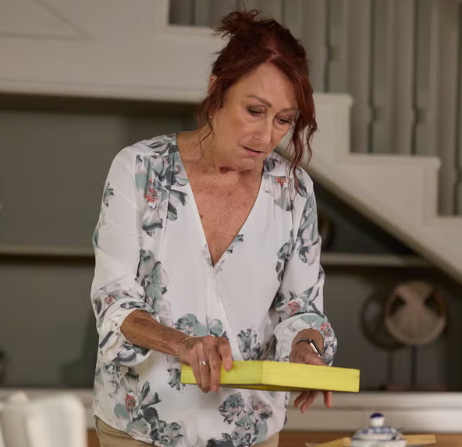The tranquil shores of Summer Bay are bracing for one of the most significant and emotionally charged departures in recent memory, as beloved resident Irene Roberts, a stalwart presence for over three decades, prepares to bid farewell. This impending exit, propelled by her recent Alzheimer’s diagnosis, is not merely a character leaving; it marks a profound shift in the fabric of the community, eliciting a complex mix of concern, frustration, and eventual heartfelt acceptance from her closest friends.
Irene Roberts, portrayed with iconic resilience and warmth by Lynne McGranger for an astonishing 33 years, has been a central figure in the lives of generations of Summer Bay residents. From her early days as a troubled foster parent to her transformation into the wise, no-nonsense, yet deeply compassionate matriarch of the Diner, Irene has weathered countless storms. She has survived fires, cults, personal tragedies, and the challenges of raising a diverse array of foster children, always emerging stronger and more beloved. Her presence has been a constant source of stability and blunt wisdom, making the revelation of her Alzheimer’s diagnosis a particularly devastating blow to both her on-screen family and loyal viewers.
The initial disclosure of her condition sent shockwaves through Summer Bay. For a character defined by her sharp wit and independent spirit, the prospect of cognitive decline was a cruel twist of fate. Yet, Irene, ever the pragmatist, has approached her diagnosis with a stoic resolve that, while admirable, has also been a source of profound worry for those who love her most. Her decision to announce her departure from the fictional coastal town, intending to leave after more than three decades, stems from a deeply personal and independent desire to reclaim agency over her final years. As actor Lynne McGranger eloquently explained, Irene “wants to use her situation, the money she has and the time she has left, to live the rest of her life the best she can.” This sentiment encapsulates Irene’s refusal to be defined by her illness, opting instead to embrace what precious time she has left on her own terms, to create new memories before her existing ones inevitably fade.

This fierce independence, however, is met with an understandable “backlash” from her devoted inner circle – Leah Patterson-Baker, Alf Stewart, and John Palmer. Their reactions are born not of anger, but of deep-seated fear and a desperate desire to protect someone they consider family. For them, Irene’s decision to cut ties and embark on an uncertain future alone seems reckless, a potential consequence of her deteriorating health, rather than a conscious, empowered choice.
The intensity of their concern becomes evident when, after Irene signs over her shares of the beloved Diner to Leah, effectively signaling her intent to divest from her long-standing life in Summer Bay, Leah, Alf, and John confront her. Their “ambush” is fraught with emotion, as they express their profound fears for her safety and well-being. Leah star Ada Nicodemou shed light on her character’s perspective, noting that for Irene, “This is her diagnosis and this is how she can make the most of a sad situation. It’s a positive outlook, considering.” This highlights the dichotomy of their views: Irene sees opportunity and defiance, while her friends see vulnerability and risk.
John Palmer, known for his often-blunt and sometimes volatile reactions, exemplifies the depth of this concern. The following day, discovering Irene showing her house to a real estate agent – another tangible step towards her complete detachment from Summer Bay – pushes John to an emotional outburst. He confronts Irene, accusing her of ignoring the world and her problems, unable to comprehend why she would willingly cast aside the support system she has cultivated over decades. This confrontational approach, while harsh, underscores the desperation felt by those witnessing Irene’s determined march towards an unknown future.

Despite their protests and heartfelt pleas, Irene remains resolute. She articulates her decision with a clarity that belies her condition, asserting that if she waits, it could be too late – a poignant acknowledgment of the progressive nature of Alzheimer’s. Her resolve is not born of stubbornness, but of a profound acceptance of her reality and a desire to live authentically within its confines. As she reflects on the countless memories made within the walls of her home, a wave of nostalgia washes over her, prompting a quiet contemplation of who will create new memories there once she is gone. Lynne McGranger perfectly captures this melancholic beauty, stating, “Now she’s accepted her diagnosis, memories and flashbacks are flooding back,” a testament to the character’s internal journey of processing her past as she prepares for a drastically different future.
Ultimately, the depth of their bond transcends initial fear and frustration. The narrative shifts from confrontation to a bittersweet embrace of Irene’s choice. In a truly heartfelt moment, Leah approaches Irene, offering to help plan her grand trip alongside John and Alf. The earlier resistance gives way to a poignant acceptance, as Leah asks only for Irene to pick the locations, signifying a turning point where support replaces control. This scene is imbued with the raw emotion of two friends facing an inevitable separation. With a mix of laughter recalling shared joys and tears mourning future losses, they collaboratively plan Irene’s final adventure, knowing that their time together in Summer Bay is drawing to a close.
Irene’s potential departure is more than just an exit; it’s a poignant exploration of themes rarely tackled with such depth in daily soap operas: the courage required to face a terminal illness head-on, the struggle for independence when faced with increasing vulnerability, and the complex dynamics of love and control within friendships. Her absence would leave an undeniable void in Summer Bay. Who will offer the sage advice, the comforting meal, or the fiercely loyal friendship that Irene has always provided? Her legacy as the heart and soul of the Diner, and as a maternal figure to so many, will resonate for years to come, long after she potentially sails off into the sunset. This storyline serves as a powerful reminder of life’s fragility, the importance of living each day to its fullest, and the enduring strength of community bonds, even in the face of profound change and loss.